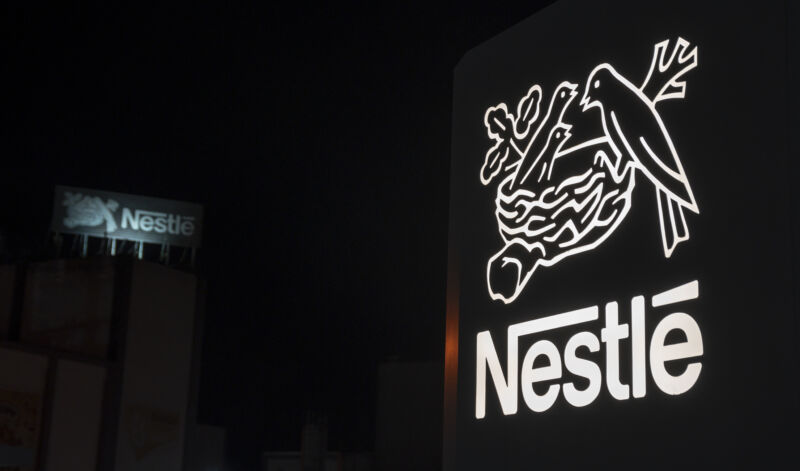
Enlarge / Night view of company logos in Nestlé Avanca Dairy Products Plant on January 21, 2019, in Avanca, Portugal. This plant produces Cerelac, Nestum, Mokambo, Pensal, Chocapic and Estrelitas, among others. (credit: Getty | Horacio Villalobos)
In high-income countries, Nestlé brand baby foods have no added sugars them, in line with recommendations from major health organizations around the world and consumer pressure. But in low- and middle-income countries, Nestlé adds sugar to those same baby products, sometimes at high levels, which could lead children to prefer sugary diets and unhealthy eating habits, according to an investigation released recently by nonprofit groups.
The investigation, conducted by Public Eye and the International Baby Food Action Network (IBFAN), says the addition of added sugars to baby foods in poorer countries, against expert recommendations, creates an “unjustifiable double standard.” The groups quote Rodrigo Vianna, an epidemiologist and professor at the Department of Nutrition of the Federal University of Paraíba in Brazil, who calls added sugars in baby foods “unnecessary and highly addictive.”
“Children get used to the sweet taste and start looking for more sugary foods, starting a negative cycle that increases the risk of nutrition-based disorders in adult life,” Vianna told the organizations for their investigation. “These include obesity and other chronic non-communicable diseases, such as diabetes or high blood-pressure.”
Read 9 remaining paragraphs | Comments
https://arstechnica.com/?p=2019502

